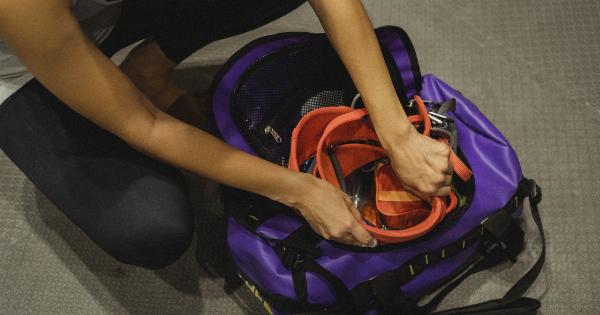Summer brings longer days, fun activities, and plenty of sunshine. While many people enjoy the warmth and outdoor festivities, pregnant women need to be cautious as the summer heat can pose certain risks to their health and well-being.
As the temperatures rise, it’s important for expecting mothers to take extra precautions and stay cool to ensure a healthy pregnancy. Let’s explore the potential dangers of pregnancy in the summer heat and discuss ways to stay safe and comfortable during this season.
1. Dehydration: A Real Concern
One of the primary risks associated with summer pregnancies is dehydration. Pregnant women already have an increased blood supply, which can make them feel warmer than usual.
Furthermore, expecting mothers are more susceptible to dehydration due to the higher fluid requirements of pregnancy. When pregnant women lose fluids through sweating, they must replace them adequately to prevent dehydration.
To combat dehydration, it is vital for pregnant women to drink plenty of water. Aim for at least eight to ten glasses per day and more if you are spending time outdoors or engaging in physical activities.
Avoid sugary drinks and caffeine as they can contribute to dehydration. Instead, opt for hydrating foods like watermelon, cucumbers, and oranges, which can provide both fluids and essential nutrients.
2. Overheating and Heat Exhaustion
Pregnant women are more likely to experience overheating and heat exhaustion during the summer months. As the body temperature rises, it can be challenging for expecting mothers to regulate their internal temperature properly.
Prolonged exposure to high temperatures can lead to symptoms like dizziness, fatigue, excessive sweating, and nausea.
It is crucial to avoid staying in direct sunlight for extended periods, especially during the hottest parts of the day. Seek shade or go indoors to prevent overheating.
Wear loose, lightweight, and breathable clothing to allow proper ventilation and airflow. Additionally, using fans, air conditioning, or cool washcloths on the neck and forehead can help lower body temperature and prevent heat-related illnesses.
3. Increased Swelling and Discomfort
Pregnant women often experience swelling, especially in the hands, feet, and ankles. During summer, the heat can exacerbate this swelling due to increased blood flow and fluid retention.
The combination of pregnancy hormones and high temperatures can make it challenging for the body to remove excess fluids, leading to discomfort and swelling.
To minimize swelling, try to elevate your legs as much as possible. Avoid standing or sitting for extended periods and take regular breaks to move and stretch your legs.
Wearing comfortable, loose-fitting shoes and clothing can also help improve circulation and reduce swelling. Additionally, regular exercise during pregnancy, with the guidance of a healthcare professional, can promote better blood flow and reduce swelling.
4. Risk of Heat Stroke
Heat stroke is a severe form of heat-related illness that can be life-threatening.
Pregnant women should be aware of the symptoms of heat stroke, which include a high body temperature (above 103°F or 39.4°C), rapid heartbeat, headache, dizziness, confusion, and even unconsciousness. Heat stroke can be particularly dangerous during pregnancy and can harm both the mother and the baby.
If you suspect heat stroke, immediately seek medical attention and take measures to cool down. Move to a shaded or air-conditioned area, remove excess clothing, and apply cool damp towels to the body.
It is essential to stay vigilant and take preventive measures to avoid heat stroke, such as staying hydrated, limiting outdoor activities during peak sun hours, and listening to your body’s signals.
5. Sunburn and Skin Changes
Sunburn is a common concern during the summer, and pregnant women are no exception. Pregnancy hormones can make the skin more sensitive, increasing the risk of sunburn and skin damage from UV rays.
Additionally, pregnant women may experience changes in their skin pigmentation due to hormonal fluctuations, leading to the formation of dark patches known as melasma or the “mask of pregnancy.”.
To protect your skin and avoid sunburn, use a broad-spectrum sunscreen with at least SPF 30 or higher. Apply it generously to all exposed skin, including the face, neck, arms, and legs.
Wear a wide-brimmed hat, sunglasses, and protective clothing to shield yourself from harmful UV rays. Seek shade whenever possible, especially during the peak hours of intense sunlight.
6. Complications from Infections
During pregnancy, women experience changes in their immune system, making them more susceptible to certain infections. The summer season brings an increased risk of infections like urinary tract infections (UTIs) and yeast infections.
Heat, humidity, and sweating can contribute to the growth of bacteria and fungi, leading to potential complications for both the mother and the baby.
It is crucial to maintain good hygiene and keep the vaginal area clean and dry to minimize the risk of infections. Drink plenty of water to flush out toxins and promote urinary tract health.
Avoid using tight synthetic clothing that can trap moisture and encourage bacterial growth. If you suspect an infection or experience any unusual symptoms, contact your healthcare provider for appropriate diagnosis and treatment.
7. Preterm Labor Concerns
Excessive heat and dehydration can potentially trigger preterm labor in pregnant women. Dehydration can cause contractions and even lead to premature birth.
Therefore, it is crucial for pregnant women to prioritize staying cool and avoiding dehydration, especially during hot summer days.
Pay attention to the signs and symptoms of preterm labor, such as regular contractions, lower back pain, pelvic pressure, vaginal bleeding, or an increase in vaginal discharge.
If you experience any of these symptoms, contact your healthcare provider immediately. Regular prenatal check-ups are also essential to monitor the health of both the mother and the baby throughout the entire pregnancy.
8. Travel Risks and Safety Precautions
Summer often means vacations and travel plans. If you are pregnant and planning to travel during the summer, there are certain risks and safety precautions to consider.
Long journeys, especially by car or plane, can increase the risk of blood clots in pregnant women due to prolonged periods of sitting or immobility.
If you have travel plans, talk to your healthcare provider beforehand to ensure it is safe for you and the baby.
Remember to stay hydrated during your journey, take regular breaks to move and stretch, and wear compression stockings to promote healthy blood circulation. Additionally, follow the recommended safety guidelines for traveling during pregnancy, such as using seat belts properly and avoiding activities with a high risk of injury.
9. Stay Hydrated, Stay Safe
The most crucial factor in maintaining a safe pregnancy during the summer heat is staying hydrated. Hydration not only helps to regulate body temperature but also supports various bodily functions.
It is essential to listen to your body’s cues and ensure you are drinking enough water throughout the day.
In addition to water, consider incorporating hydrating foods into your diet. Fruits and vegetables with high water content, such as watermelon, grapes, cucumber, and lettuce, can contribute to your fluid intake.
You can also try flavored water or infusions to make hydration more enjoyable if plain water is not appealing to you.
10. Seek Shade and Cool Comfort
Avoiding direct sunlight during the hottest parts of the day is crucial for pregnant women. Seek shade whenever possible, whether it’s under trees, umbrellas, or canopies.
If you must be outdoors, try to plan your activities early in the morning or later in the evening when the temperatures are milder.
Wearing loose, breathable clothing made from natural fabrics like cotton or linen can help you stay cooler and more comfortable. Opt for light-colored clothing to reflect sunlight instead of absorbing it.
Don’t forget to protect your head and face with a wide-brimmed hat and sunglasses to shield yourself from the sun’s rays.
Remember that every pregnancy is unique, and it is essential to consult with your healthcare provider to address any specific concerns or risks you may have during the summer heat.
Taking proper precautions and actively caring for your well-being will help ensure a healthy and enjoyable pregnancy despite the challenging summer conditions. Stay cool, stay hydrated, and stay safe!.






























